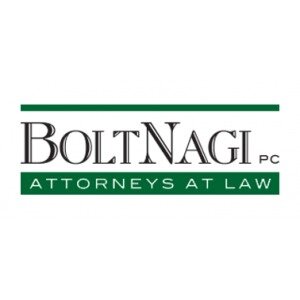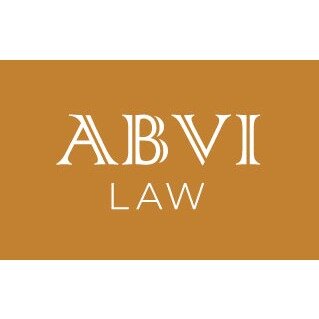Best Mortgage Lawyers in British Virgin Islands
Share your needs with us, get contacted by law firms.
Free. Takes 2 min.
Free Guide to Hiring a Real Estate Lawyer
Or refine your search by selecting a city:
List of the best lawyers in British Virgin Islands
About Mortgage Law in British Virgin Islands
In the British Virgin Islands, mortgage law governs the legal agreements by which individuals or entities can secure loans using real estate property as collateral. The jurisdiction follows a mixed legal system based on both British common law and local statutes, making the BVI a unique place for property and finance laws. Mortgages in the BVI are typically registered as charges, with the Registrar of Lands playing a central role in ensuring transparency and proper documentation of property transactions.
Why You May Need a Lawyer
Navigating the complexities of mortgage law in the British Virgin Islands can be challenging, and legal assistance might be necessary in a variety of circumstances. You may need a lawyer if you are:
- Purchasing property and require advice on mortgage options and terms.
- Facing issues with your mortgage repayments or dealing with foreclosure proceedings.
- A lender who needs assistance in drafting mortgage agreements or in recovering debts.
- Engaged in a dispute over property rights or mortgage terms.
- Looking to refinance or modify existing mortgage agreements and need guidance through the legal process.
Local Laws Overview
Mortgage laws in the British Virgin Islands are governed by a mix of local statutes, common law principles, and practices. Key aspects include:
- The Registered Land Act, which outlines procedures for creating, registering, and discharging mortgages.
- The Registration of Documents Act, which provides a framework for the registration and public notice of mortgages.
- Legal requirements for the registration of charges against property titles to protect lender interests.
- Obligations and rights of both mortgagees and mortgagors, including foreclosure procedures.
- Regulations around interest rates, repayment schedules, and contractual clauses within mortgage agreements.
Frequently Asked Questions
What is the process of obtaining a mortgage in the BVI?
The process generally involves applying to a bank or financial institution, undergoing a credit check, and negotiating the terms of the mortgage. Once agreed, the mortgage must be registered with the Registrar of Lands.
Are there restrictions on foreign ownership of property?
Yes, non-Belongers need to obtain a Non-Belonger Land Holding License to purchase property, including property acquisitions secured by a mortgage.
How is foreclosure handled in the British Virgin Islands?
Foreclosure in the BVI is a legal process wherein the lender can repossess and sell a property if the borrower fails to make the required payments. The process must comply with the terms specified in the mortgage agreement and statutory requirements.
Can mortgage terms be renegotiated?
Yes, it is possible to renegotiate mortgage terms with the lender, subject to their agreement. Legal assistance may be helpful to navigate the renegotiation process.
What happens if the mortgaged property is sold?
If the property under mortgage is sold, the outstanding mortgage must usually be cleared before or at the point of sale completion, unless otherwise agreed upon by the buyer and lender.
Is it possible to take multiple mortgages on one property?
Yes, multiple mortgages or charges can be taken on a property, but each must be registered, and priority is usually determined by the order of registration.
What costs are involved in obtaining a mortgage?
Costs can include arrangement fees, legal fees, valuation fees, and potentially stamp duty and registration costs.
How are interest rates for mortgages determined?
Interest rates are generally determined by the lending institution based on market conditions, the borrower's creditworthiness, and negotiation between the parties.
What is mortgage discharge?
Mortgage discharge is the process of releasing the property from the mortgage once the loan amount is fully repaid, requiring documentation to be lodged with the Registrar of Lands.
Can a mortgaged property be rented out?
This is usually possible, but lenders may include clauses in the mortgage agreement requiring their consent. It is advised to check the specific terms of your mortgage agreement.
Additional Resources
For further assistance regarding mortgage laws and processes in the British Virgin Islands, consider reaching out to:
- The BVI Financial Services Commission for regulatory advice.
- Registrar of Lands for queries about property registration and mortgage discharge.
- Local legal professionals who specialize in real estate and mortgage law.
- BVI Bankers’ Association for information on lending practices and institutions.
- The Building Societies Act for regulations governing financial institutions involved in mortgage lending.
Next Steps
If you require legal assistance regarding mortgages in the British Virgin Islands, consider taking the following steps:
- Identify your specific needs and goals related to your mortgage.
- Seek recommendations for experienced mortgage lawyers in the BVI who can guide you through the legal process.
- Schedule consultations to discuss your case, understand potential legal fees, and select a lawyer whose expertise aligns with your requirements.
- Ensure you have all relevant documents, including mortgage agreements and previous correspondence with lenders, ready for review by your legal advisor.
Remember, engaging a knowledgeable lawyer can provide clarity, protect your interests, and help facilitate a successful mortgage process.
Lawzana helps you find the best lawyers and law firms in British Virgin Islands through a curated and pre-screened list of qualified legal professionals. Our platform offers rankings and detailed profiles of attorneys and law firms, allowing you to compare based on practice areas, including Mortgage, experience, and client feedback.
Each profile includes a description of the firm's areas of practice, client reviews, team members and partners, year of establishment, spoken languages, office locations, contact information, social media presence, and any published articles or resources. Most firms on our platform speak English and are experienced in both local and international legal matters.
Get a quote from top-rated law firms in British Virgin Islands — quickly, securely, and without unnecessary hassle.
Disclaimer:
The information provided on this page is for general informational purposes only and does not constitute legal advice. While we strive to ensure the accuracy and relevance of the content, legal information may change over time, and interpretations of the law can vary. You should always consult with a qualified legal professional for advice specific to your situation.
We disclaim all liability for actions taken or not taken based on the content of this page. If you believe any information is incorrect or outdated, please contact us, and we will review and update it where appropriate.
Browse mortgage law firms by city in British Virgin Islands
Refine your search by selecting a city.














